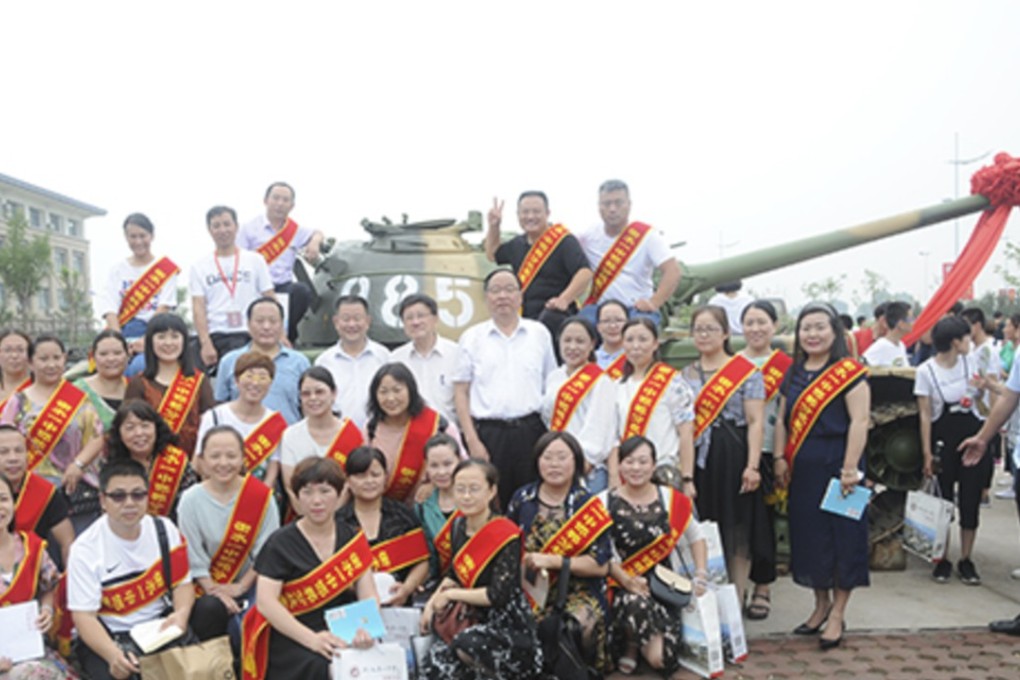Study hard, or else: Chinese school parks tanks outside its entrance to ‘motivate’ pupils
High school has already courted controversy for its use of military discipline but the latest stunt takes things one step further

A Chinese high school that has already become controversial for its use of military discipline to get the best out of its pupils has decided to go one step further by stationing two tanks outside the entrance to motivate them in their studies.
The school in Handan in the northern province of Hebei bought the tanks from the People’s Liberation Army and held an inauguration ceremony during its annual open day on Tuesday, news portal Thepaper.cn reported.
Guo Hong, the school’s president, was quoted as saying that the decommissioned military vehicles have the serial numbers 985 and 211 – the same numbers given to two national plans for the country’s top universities.
An unnamed staff member said that the tanks were intended to encourage staff and pupils to fight for a better future.
“[We] hope that each pupil and teacher will carry forward the spirit of fearlessness towards any difficulties and of making sacrifices, and fight bravely … never taking a break in studying, in fighting and in contributing,” the person said.